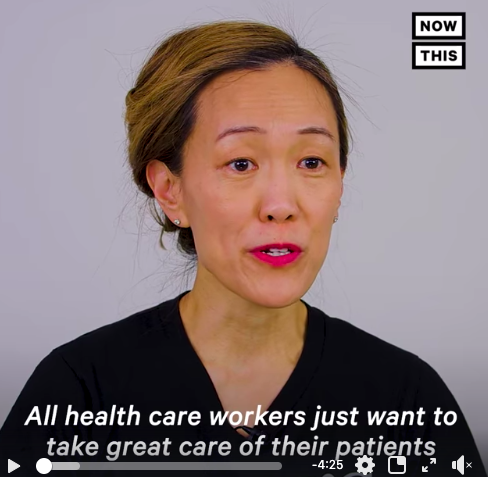Reading Time: 4 minutes
And they may have accidentally taken it too far.
Confluence Daily is your daily news source for women in the know.
By: Lisa M. Hayes
Few topics in the turbulent world of American politics elicit a more passionate response than abortion. The abortion topic is a prominent point of contention for the Republican Party as the country prepares for the 2024 presidential election. The country is still in shock at the Supreme Court’s historic decision to reverse Roe v. Wade, which has had a significant and lasting impact on the electoral environment.
Historical Background and Legal Environment
For many years, abortion has been a divisive topic in American politics, both as a yardstick for politicians and a catchphrase for activists. A pivotal moment occurred with the 1973 Roe v. Wade ruling, which made abortion legal everywhere in the country. But this decision’s subsequent reversal has brought the matter back into the political public front and changed the legal and social landscape. The pro-choice and pro-life groups have been revitalized by this shift, which has also compelled political parties to reevaluate their positions and tactics.
Public Attitude and Changes
Recent polls show that public opinion on abortion is varied and diverse. Although a sizable number of Americans support access to abortion in some capacity, opinions on the scope and circumstances surrounding this access are noticeably divided. These opinions frequently diverge greatly along political, geographic, and demographic lines, resulting in a patchwork of attitudes and ideas. Republicans find it difficult to navigate this complex web of public opinion as they try to strike a compromise between their traditional pro-life constituency and the larger, more moderate population.
Internal Divisions and the Republican Stance
In the past, the Republican Party has supported harsh abortion restrictions in tandem with the pro-life movement. But this stance has caused controversy and internal conflict, especially after the Roe v. Wade ruling was overturned. A more moderate attitude has been advocated by certain Republican leaders and supporters out of concern that an uncompromising position may alienate independent and centrist voters. The party’s internal conflicts are a reflection of a larger existential discussion about the party’s future and identity in the post-Roe era.
Effects on Voter Engagement and Turnout
Voter participation and involvement are probably going to be significantly impacted by abortion’s prominence in the political discourse. Abortion has always been a powerful motivator for pro-choice and pro-life activists, pushing them to the polls. The topic may energize voters in the next election, especially women and young people who may see the 2024 vote as a referendum on the right to an abortion. If Republican candidates are seen as out of touch with the majority’s views on abortion rights, this increased engagement could work against them.
The Republican Party faces a significant obstacle in the form of the abortion question as the 2024 presidential election draws near. It will be critical to strike a balance between the demands of its historic base and the changing views of a larger electorate. If Republicans don’t take a nuanced stance on this intensely personal and contentious topic, they run the risk of offending voters who have the power to choose the next president.
Getting Involved and Supporting Women’s Health and Reproductive Rights
For those moved by the issue of reproductive rights and seeking to make a difference, there are numerous ways to get involved and support women’s health initiatives. Engagement ranges from local to national levels, and support can take various forms, from volunteering and advocacy to financial donations.
Volunteer and Advocate
- Local Clinics and Health Centers: Volunteering at local clinics and health centers that provide reproductive health services can offer direct support to those in need. These centers often look for volunteers to assist with a range of tasks, from administrative support to patient care.
- Advocacy Groups: Joining advocacy groups focused on women’s health and reproductive rights is a powerful way to contribute. These organizations often organize rallies, petition drives, and lobbying efforts to influence policy and public opinion.
Donate
- Planned Parenthood: As one of the most well-known organizations supporting reproductive rights, Planned Parenthood provides a range of services including health care, education, and advocacy. Donations to Planned Parenthood support these efforts and contribute to the broader fight for reproductive rights.
- NARAL Pro-Choice America: This organization is dedicated to fighting for women’s reproductive rights and freedom. Donating to NARAL supports their work in lobbying for pro-choice legislation and providing educational resources.
- Center for Reproductive Rights: This global legal advocacy organization focuses on advancing reproductive rights through the legal system. Donations support their efforts to secure legal victories that protect and advance reproductive rights internationally.
Educate and Inform
- Community Education: Being informed and educating others plays a crucial role in advocacy. Attend workshops, seminars, and conferences to stay informed on the issues. Sharing accurate information and resources within your community can help raise awareness and support informed decision-making.
- Social Media: Use social media platforms to spread awareness and support campaigns that promote reproductive rights. Sharing stories, facts, and advocacy campaigns can help amplify the message and mobilize others.
Political Engagement
- Voting: Participate in local and national elections to support candidates who advocate for women’s health and reproductive rights. Your vote can influence policy and legislative actions affecting reproductive rights.
- Contact Representatives: Communicate with your elected officials to express your support for reproductive rights and women’s health. Letters, emails, and phone calls to representatives can urge them to take action and prioritize these issues.
By engaging in these activities, individuals can contribute to the ongoing struggle for reproductive rights and ensure that women’s health remains a priority in the political and social landscape. Whether through direct action, financial support, or spreading awareness, every effort counts in the fight to protect and advance women’s health and reproductive rights.
Confluence Daily is the one place where everything comes together. The one-stop for daily news for women.

Lisa M. Hayes is also the editor and chief of Confluence Daily.
Lisa is also an LOA Relationship Coach. She helps clients leverage Law of Attraction to get the relationships they dream about and build the lives they want. Lisa is also the founder of The Coaching Guild where the world’s best coaches are trained.






